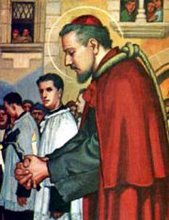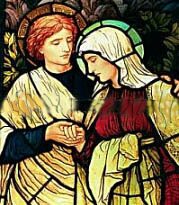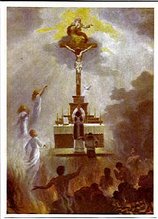From the German: "Eternal rest grant unto them, may eternal light shine upon them. May they rest in peace!"
The following is a summary from the Handbook of Indulgences available
here for purchase. No Catholic home should be without it!
Who Needs Indulgences?: Anyone with unforgiven venial (less serious) sin or temporal punishment remaining from sins forgiven in life. This applies to the living and the souls suffering in purgatory. In reality, most souls go to purgatory before entering heaven.
What are Indulgences?: An indulgence is a remission of time in purgatory drawn form the 'spiritual treasury' of Jesus, Mary and the Saints who earned graces which they did not need. The Roman Catholic Church, the True Church, unlocks these graces through its authority to 'bind and loose' (Matthew 16:19). They may be applied by a person to himself/herself or offered to a soul (or the souls) suffering in purgatory.
How are Indulgences Gained?:
1. The person must be baptized and free from mortal sin (in the state of grace).
2. The person must have the intention (desire or goal) of obtaining the indulgence (they are not gained accidentally).
3. The work/works prescribed by the Church must be completely and correctly performed.
What is a Partial Indulgence?: A partial indulgence remits a part of the temporal punishment due. There is no limit to the number of partial indulgences that can be obtained in a single day.
What is a Plenary Indulgence?: A plenary indulgence remit all of the temporal punishment due leaving the soul completely clean. This would allow a soul to escape purgatory and enter heaven.
How is a Plenary Indulgence Obtained?:
1. The prescribed work must be performed.
2. In addition to the normal conditions, the person gaining the indulgence must be completely free from all all attachment to sin, including venial sin.
3. The person gaining gaining the indulgence must go to sacramental confession at least 20 days before or after the day that the work is performed.
4. The person gaining the indulgence must receive communion and pray for the intentions of the Pope (at least one Our Father and Hail Mary) specifically for each plenary indulgence desired.
5. The Church lengthened the time for confession, communion and prayer for the Pope to 20 days before or after the day of the indulgence (January 29, 2000:
Gift of Indulgence document).
6. Only one plenary indulgence can be obtained a day (the only exception being that a second may be obtained at the moment of death).
What are Some of the Works Meriting the Plenary Indulgence?: Refer to the Handbook of Indulgences for additional places and times of the year which plenary indulgences may be obtained. The works below are referenced with the Handbook's listing number.
1. Way/Stations of the Cross in a Church by moving from station to station while meditating at each one.
2. Rosary: five decades said with others (family, parish members, religious community).
3. Reading Sacred Scripture for at least 30 minutes.
4. Adoration of the Blessed Sacrament for at least 30 minutes.
5. Visiting a Church or Oratory on All Souls Day with recitation of one Our Father and the Creed.
6. Hearing a Papal Blessing via radio/television when given to Rome and the world. Must be live.
7. Moment of Death: if a priest is unavailable, a person in the state of grace may obtain a plenary indulgence providinga. They have been (a.) in the habit of reciting some prayers during their lifetime (which substitutes for the required confession/communion/prayers for the Pope)and (b.) They are properly disposed (free from attachment to sin, including venial sin).
What are the Works Which Earn a Partial Indulgence?
1. Prayers and pious invocations.
2. Visit to a cemetery and praying for the dead (plenary from Nov. 1-8 with usual conditions).
3. Performing in the spirit of faith adn mercy a corporal or spiritual Work of Mercy (including almsgiving) to serve someone in need. (Second General Grant)
4. Mortification/penance: voluntarily depriving oneself of what is licit/allowed and pleasing to them. (Third General Grant).
5. Works meriting a plenary indulgence may also be performed for a partial indulgence.
How Can I Gain Every Indulgence Possible?: A key aspect of indulgences is having the intention of gaining the indulgence: they are not gained accidentally or automatically. An easy way to avoid loosing indulgences is making a simple prayer at the beginning of the day asking to gain all indulgences earned. Here is an example:
"I desire to gain each indulgence I earn through prayer and work today. Amen.+"


 Our Holy Father John Paul II venerating this same chalice. He later said mass using it - it was also said this was the first "Peter" to say mass with this chalice since St. Peter.
Our Holy Father John Paul II venerating this same chalice. He later said mass using it - it was also said this was the first "Peter" to say mass with this chalice since St. Peter.





















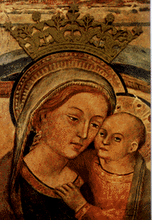


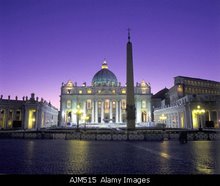

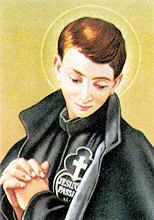
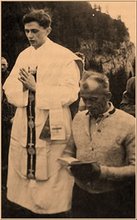

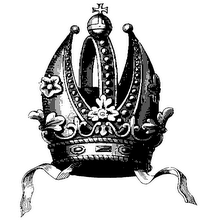
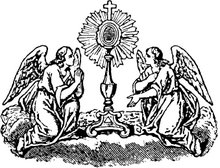
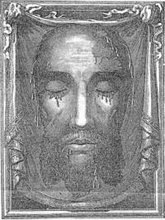
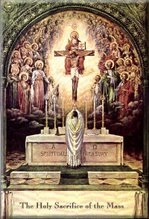

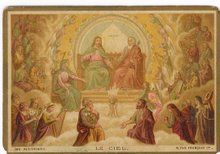




01.jpg)


